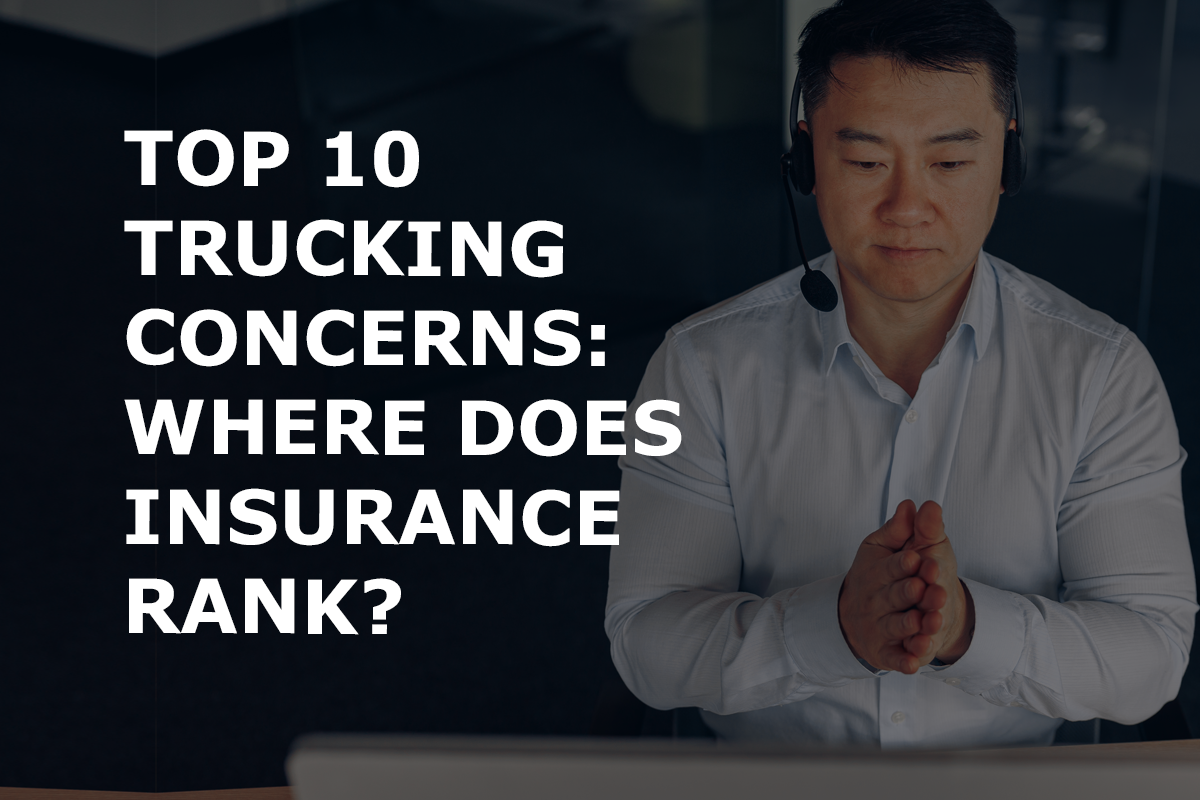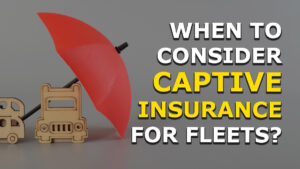ATRI research documented a 40 percent increase in the liability insurance premium cost per mile over the past decade, although the growth in premiums has moderated somewhat more recently, with just a five percent increase from 2018 to 2022.
In October, the American Transportation Research Institute (ATRI) released its 19th annual Top Industry Issues report that lists the top trucking concerns in the past year.
This year’s list includes the Economy, Truck Parking, Fuel Prices, the Driver Shortage, Driver Compensation and for the first time, Zero-Emission Vehicles.
Interestingly, insurance rates are beginning to level off which likely contributed to “Insurance Cost/Availability” staying out of the overall Top 10 once again this year.
Let’s look at this report more closely.
Are insurance rates getting better?
According to last year’s ATRI top industry concerns report, the industry saw average insurance premiums decrease slightly.
Insurance costs for small carriers came down from the high 2020 levels, while private carriers saw a large decline in insurance premiums per mile. However, this decline – from 11 cents in 2020 to 8 cents in 2021 – brought their average closer to that of for-hire carriers.
This coincides with data from a Fitch Ratings report in June where, for the first time in a decade, the commercial auto insurance sector posted an underwriting profit in 2021.
This may be due to carriers turning to technology, including cameras, telemetry and artificial intelligence, to help mitigate risk and reduce premiums as more insurers are incorporating data from video safety solutions and telematics into their risk models for improved underwriting.
What about “Lawsuit Abuse Reform”
According to ATRI’s latest report, the need for Lawsuit Abuse Reform is important as the frequency and size of verdicts and settlements against the industry have grown in recent years.
This has led to increased insurance premiums for all carriers, regardless of safety performance and crash involvement.
While nuclear verdicts remain a factor, the cost of small claims is increasing.
For example, a $2,500 claim is now $5,000 over the last three years and underwriters are looking at the frequency of claims and costs.
This means those small claims are significant.
ATRI proposed some strategies to help with these issues:
Promote state-level reform to cap damages paid to plaintiffs in truck-involved crashes.
Seeking reform at the state-level to put limits on the amounts that can be awarded to plaintiffs for non-economic damages is the preferred strategy of the majority (64.8%) of respondents.
On May 12, 2023, Iowa Governor Kim Reynolds signed into law legislation that tries to limit the nuclear verdicts affecting trucking companies in the state. The new law caps noneconomic damages at $5 million that can be awarded to victims in a lawsuit against a trucking company whose employee caused an accident.
Advocate for elimination of “phantom” damages.
Phantom damages are the delta between medical costs that a defendant is billed for versus the actual medical costs paid.
These inflated amounts can create a non-compensatory windfall for the plaintiff and plaintiff’s attorney.
Recent legislative wins in Florida and Montana specifically addressed phantom damages and other states are looking to pursue similar legislation.
For example, on March 24, 2023, Governor DeSantis signed a tort reform bill that should help trucking companies in the state of Florida, effective immediately that:
- Modifies the bad faith insurance claims,
- Eliminates one way attorney’s fees and fee multipliers,
- Ensures that Floridians can’t be held liable for damages if the person suing is more at fault, and
- Expands immunity for property owners defending against a criminal who is injured on their property while providing uniform standards for juries in calculating medical damages
The bill also makes it more difficult for plaintiffs to recover punitive damages that are intended to punish the defendant rather than compensate the plaintiff and will make it more difficult for plaintiff attorneys to secure nuclear verdicts.
One in five respondents believe that elimination of phantom damages is the top strategy for Lawsuit Abuse Reform.
Quantify the impact of third-party litigation financing on trial outcomes.
The use of third-party litigation financing is growing in the U.S., and it is often used to provide capital for plaintiffs’ cases to cover things like focus groups, expert witnesses and other litigation tools.
The financing is typically provided on a contingency basis, with repayment generating from a judgement or out-of-court settlement favoring the plaintiff.
As described in ATRI’s nuclear verdict research, the growth in third-party litigation financing is leading to increased litigation and frivolous lawsuits being pursued in hopes of investor payouts.
The lack of transparency surrounding third-party litigation funding prompted a 2022 General Accounting Office (GAO) review of the third-party litigation funding marketplace.
Quantifying the impact of third-party litigation on trial outcomes is the preferred strategy of 13.8 percent of respondents.
How we keep trucking insurance rates down
The worst situation to be in is getting bad commercial truck insurance coverage and being committed to it for a year when one accident can ruin your business.
We recommend you start a custom quote online or call us directly to speak with a licensed trucking insurance professional.
We also assist trucking companies and haulers of all types with the necessary compliance advice that comes with owning a trucking company.
Our sister company, Compliance Navigation Specialists, is an industry-leading compliance company that will help keep you in compliance and commercial insurance rates low.
Their DOT Compliance Specialists are well-versed in the FMCSA rules and regulations and offer a number of services for you.
A PSM DOT Essentials Program is designed to keep motor carriers compliant with the basic DOT regulations that nearly all carriers must follow.
For more information, contact CNS at 888.260.9448 or info@cnsprotects.com.






